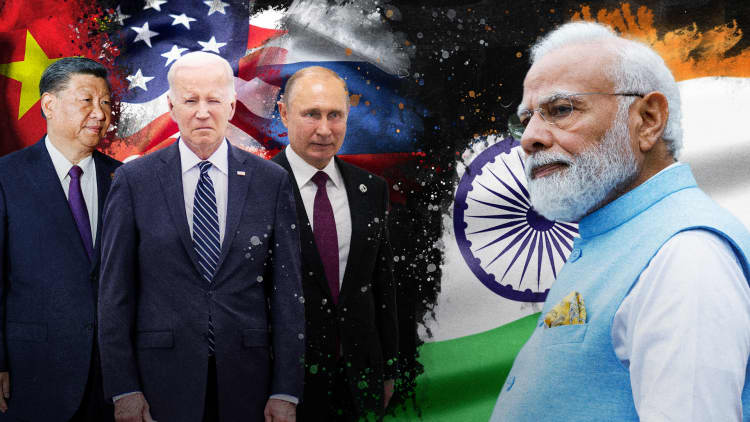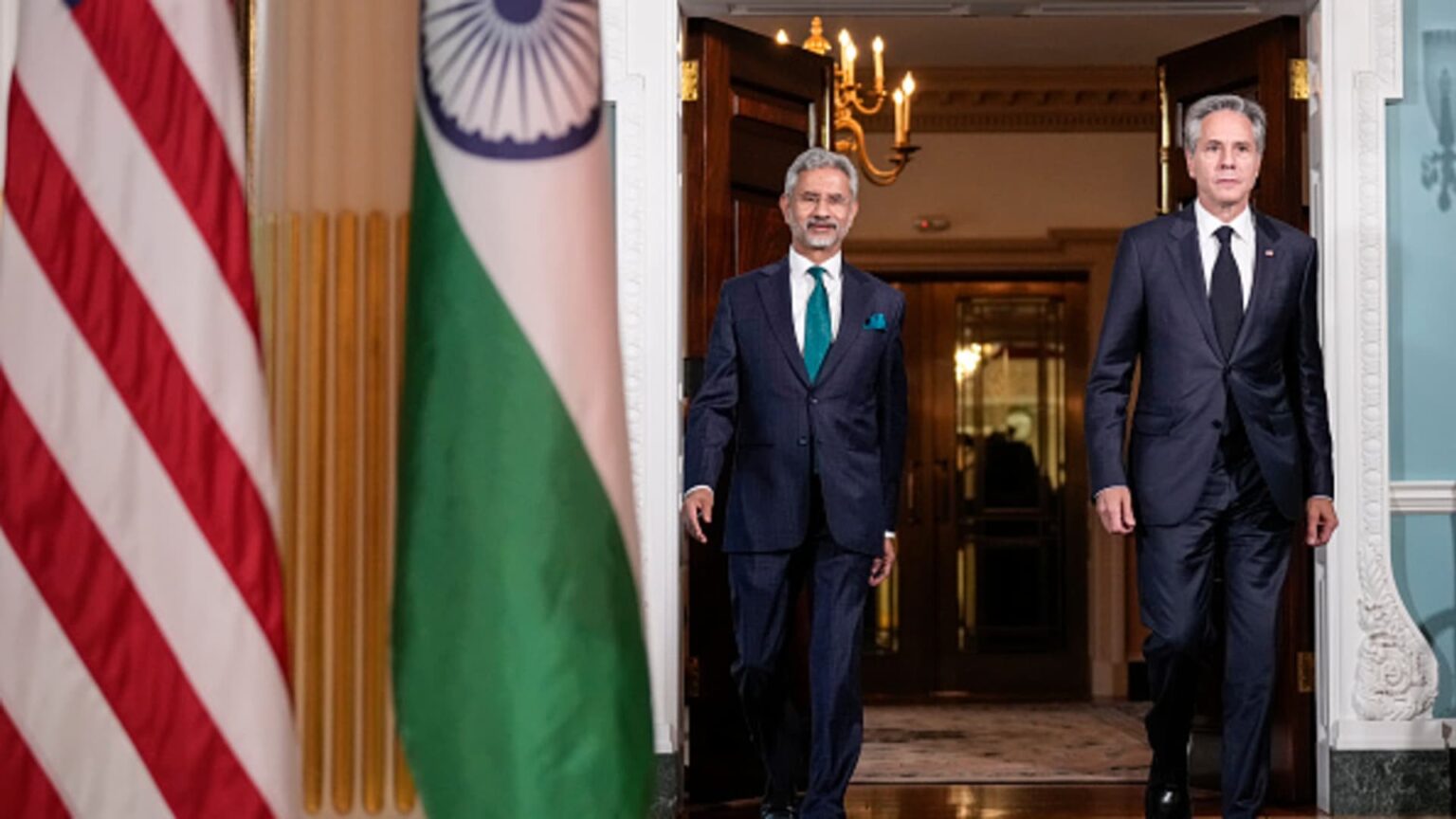U.S. Secretary of State Antony Blinken met India’s foreign minister Subrahmanyam Jaishankar in Washington on Thursday, but the U.S. readout did not mention the spiraling dispute between India and Canada.
Ahead of that meeting, Canadian Prime Minister Justin Trudeau reportedly said he had received assurances that Washington would “certainly discuss” with New Delhi the extra-judicial slaying of a Sikh separatist in Canada.
Trudeau went public with “credible allegations” on Sept. 18, accusing the Indian government of orchestrating the murder.
Blinken is the highest ranking U.S. official to have commented publicly on the festering crisis between two of America’s closest allies when he urged India to work with Canada to investigate Trudeau’s claims.
Readouts are typically issued after U.S. officials meet with other parties; details vary and exclusions may not suggest the issue was excluded from the agenda.
Trudeau has so far not made public any evidence. India claimed Sep. 21 Canada shared “no specific information” about the murder of Hardeep Singh Nijjar, a naturalized Canadian and prominent advocate for an independent Sikh homeland known as Khalistan.
Both countries have responded with reciprocal expulsions of senior diplomats. Canada also halted trade negotiations, while India suspended visa processing services for Canadians and demanded parity in diplomatic staffing, effectively forcing Ottawa to reduce its diplomatic staff numbers in India.
The deepening rift between the two sides is concerning Canada’s closest allies — Australia, the United Kingdom and the United States. If allegations are true, this may well derail the U.S. courtship of India as a partner in a broader Indo-Pacific strategy aimed at countering China.
India-U.S. relations

The U.S. readout said Jaishankar and Blinken on Thursday “discussed a full range of issues, including key outcomes of India’s G20 presidency, and the creation of the India-Middle East-Europe Economic Corridor and its potential to generate transparent, sustainable, and high-standard infrastructure investments.”
The readout also said the two leaders talked about “the continued importance of cooperation ahead of the upcoming 2+2 Dialogue, in particular in the areas of defense, space, and clean energy.”
The 2+2 ministerial dialogue is a wide-ranging engagement in several key areas of co-operation, underscoring the depth and breadth of the bilateral relationship between U.S. and India.
Jaishankar is in the U.S. on a working visit Sept. 22-30, which included stops at the United Nations General Assembly in New York and several bilateral meetings in Washington D.C.
Read the full article here










